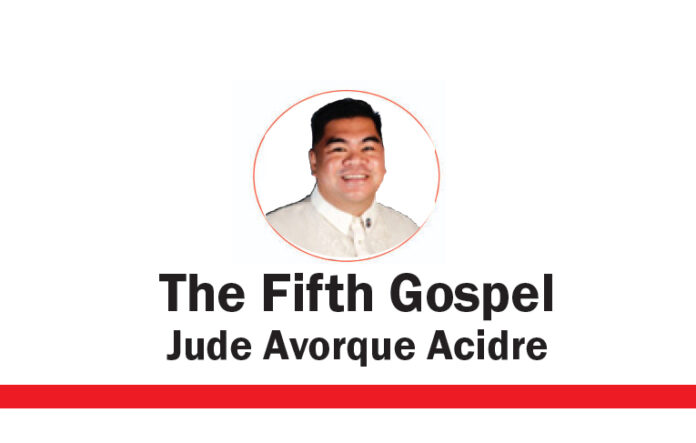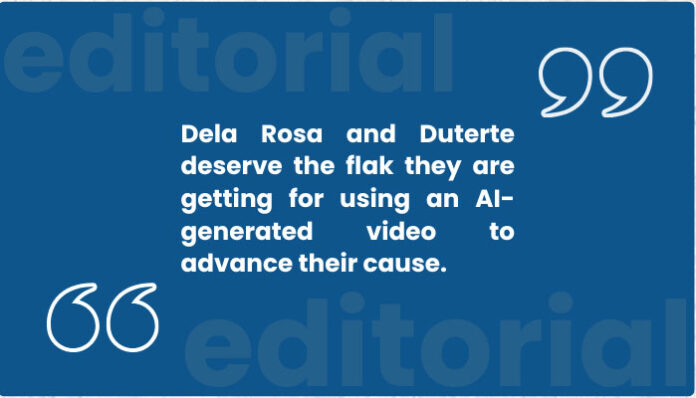“True freedom is freedom with dignity and honor”
A WEEK after the nation celebrated the 127th year of Philippine Independence, it is important to bear in mind that with freedom from colonial rule entails great responsibility on the part of our leaders.
And part of this responsibility is to ensure the nation’s resources should be safeguarded not only for the present but also for future generations.
An integral part of this is combating corruption or the thievery of the national treasury.
Article II of the 1987 Constitution has to do with State Policies, and Section 27 provides: “The State shall maintain honesty and integrity in the public service and take positive and effective measures against graft and corruption.”
Every administration in this country since 1987 has vowed to stop corruption.
But apparently none has succeeded. The cynics among us would probably sneer that everytime the Chief Executive promises a graft-free Philippines during his/her watch, that would be merely repeating what all previous Chief Executives since the postwar era have solemnly said, only to end up with disappointingly paltry results.
It is not going to be an easy task, after all, to uproot the system that breeds graft and corruption.
That system allows the main government entities involved in collecting taxes and duties—the Bureau of Internal Revenue and the Bureau of Customs—as well as those engaged in implementing big-ticket infrastructure projects such as roads and bridges, to become veritable cesspools of corruption.
At the other end of the spectrum is the system that allows the traffic policemen to extort money from errant motorists, for instance, or those working in offices that issue permits and licenses to ask for bribes to expedite approval.
In both cases, money changes hands, differing only in the amount involved, but nevertheless perpetuating a culture of corruption that has baffled many leaders in every administration and leaving people wondering whether it is possible at all to eliminate the wretched system.
We’re told that if Singapore and Hong Kong can stamp out corruption, why can’t we?
Indeed, why can’t we?
But beyond this, the more complicated issue is where to begin. And to do so means to pose the right questions.
Is the country poor because of corruption? Is corruption inevitable in societies where poverty is stark and prevalent? Will prosperity bring an end to corruption?
The enlightened view is that while corruption plays a part in perpetuating poverty levels, it should not be blamed as the biggest factor that accounts for poor people.
Wrong government policies can just as well breed poverty, as does a damaged culture that keeps the country from making the big leap to economic and social progress.
It is true that as long as the corrupt are not wiped out, the poor will remain in our midst. If we want to free our country, we must free the government and ourselves from greed.
We must stop corruption dead in its tracks with decisive moves. But the big question is whether any administration will show political will and demonstrate its resolve to minimize, if not put an end to, systemic corruption.
What’s often cited as proof of the government’s sincerity in fighting corruption is the number of big fish who are sent to jail.
Admittedly, there’s much to be done in this respect. You can probably count on the fingers of one hand those who have actually gone to jail in recent years for stealing from the public coffers.
The key, from where we sit, is leadership by example.
It is not enough that the President himself is perceived as someone who will not enrich himself in office.
He must be backstopped by men and women of unquestioned integrity.
Unfortunately, some of his choices have fallen far short of the ideal and, this early, after three years in office, the administration faces harsh criticism from those who dismiss it as doomed to fail, precisely because the President cannot seem to stop the hemorrhage of public funds in key departments and agencies.
True freedom is freedom from hunger, ignorance, poverty and lack of jobs. True freedom is freedom with dignity and honor.
Freedom from corruption, alas, does not automatically come from winning the war against poverty; it must be fought—and fought fiercely—with the national leadership itself leading the charge. (Email: ernhil@yahoo.com)








